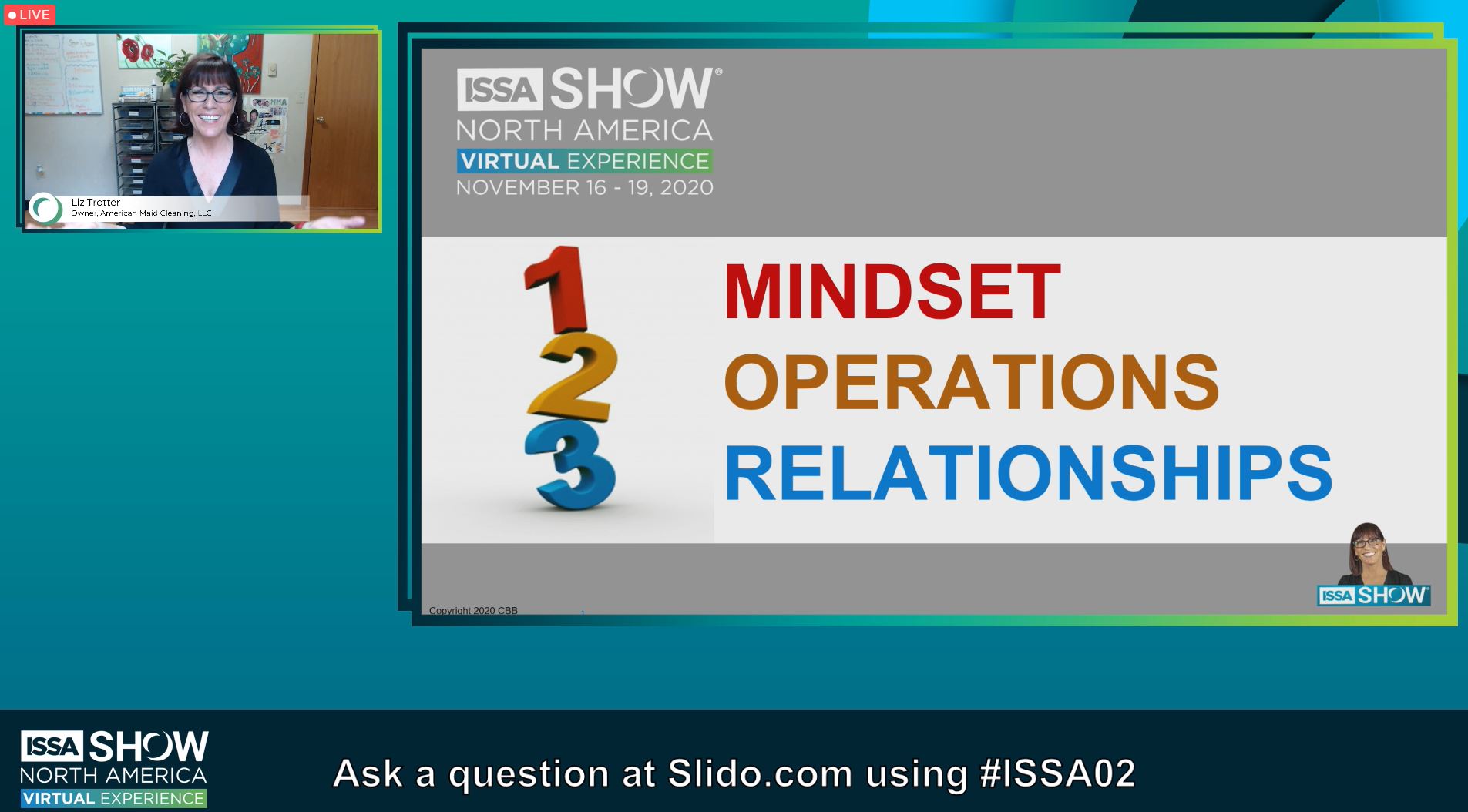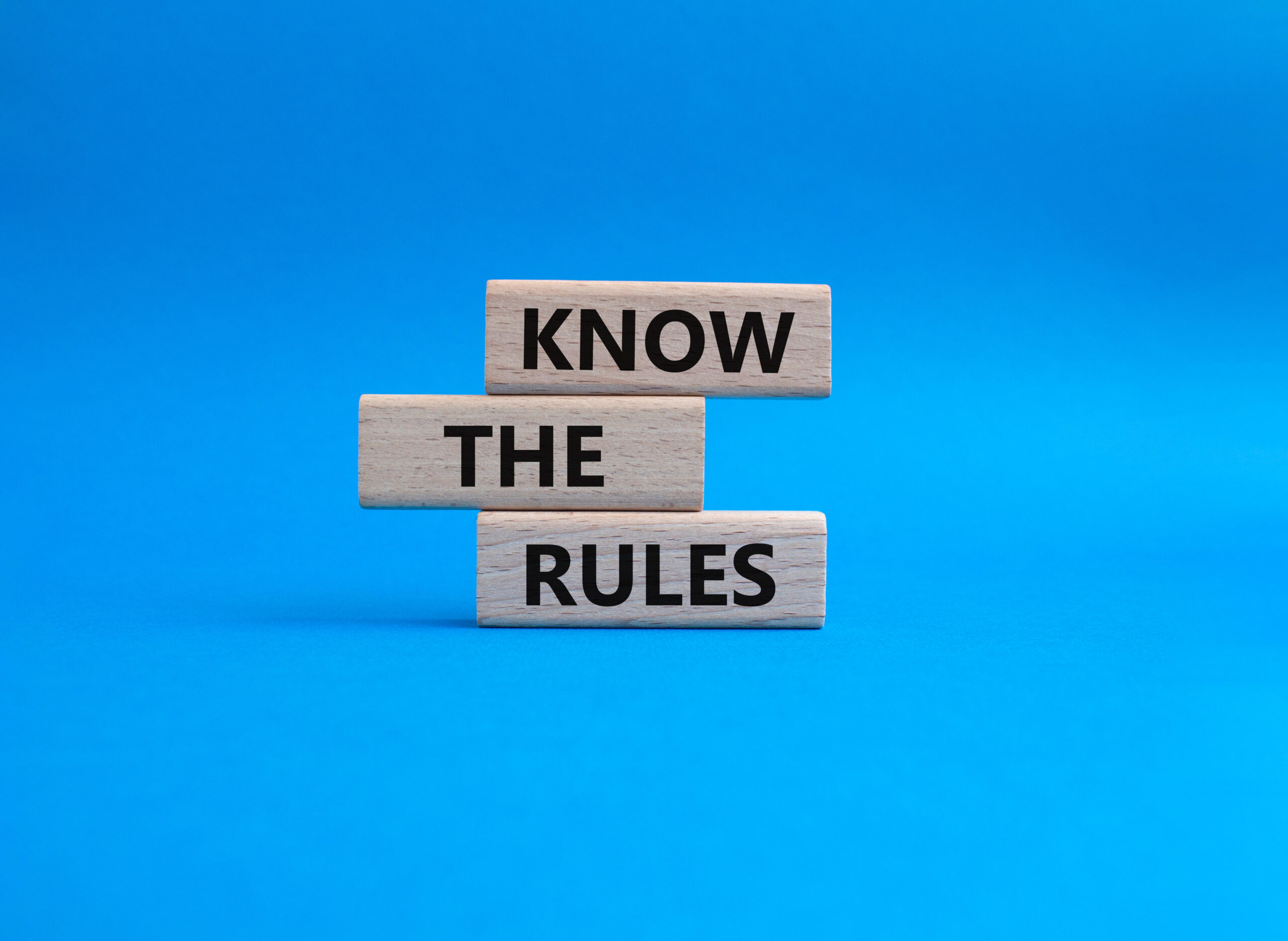Liz Trotter’s talk can be summarized by the quote she gave at the very beginning of her presentation. It comes from Vinod Khosla who said, “Any problem is an opportunity. The bigger the problem, the bigger the opportunity.”.
The theme of this talk was decided upon well before the onset of COVID-19. However, as the year progressed, Liz realized this topic was almost perfect for the current state of affairs.
Liz stressed three points to improve so that you can thrive during times of turmoil.
- Mindset
- Operations
- Relationships
Some might think the “mindset” requires you to have a positive outlook at all times. While Liz thinks it is important to have a positive outlook, it is not required. Sometimes you have to face reality. Things can go bad. However, the right mindset is something called a “growth mindset”. A growth mindset is a term coined by psychologist Carol Dweck that says a mindset of growth looks at failure as an opportunity to grow. A person with a fixed mindset just accepts failure.
Liz specified a part of Carol Dweck’s TEDTalk where a person with a growth mindset says, “yet”. Anytime something troubling comes along, a person with a growth mindset says, “yet I can do something about this”.
For the second point, Liz made the point that operations have to be able to function under stress. How does your business run? What happens when something goes wrong? How do you and your employees react? This encompasses everything to do with your business from supplies and employees to time management and systems. Are all your systems in one place? What if there is a fire? Are they on the cloud? On paper?
Among the things Liz spoke about operations, she mentioned you must keep your operations tight. Tight as in cutting wasted time, good control over your finances, and tight emergency processes. For wasted time, it comes down to how well you are keeping track of your employees and records. Making sure people are getting to places and getting the job done with no space for lollygagging makes sure work is getting completed.
If you’re keeping track of your finances, you’re seeing what money is being wasted and can spot any leaks before they get too bad. Making sure you have a safety net is also important. If things shut down how are you going to keep things level? If you don’t have liquid assets that can be quickly distributed, you’ll be in some trouble.
To keep an emergency process tight, it would be helpful to know who does the thing, what is the thing that needs to be done, and when does it need to be done. “If you can define those three things then almost ALL emergency situations become easier, they become manageable.”, said Liz.
When the going gets tough, you’ll need to have something that feeds into the first two major points of this talk. Relationships. “Relationships are at the core of everything you need, the foundational piece.”
A good relationship will help you when you are down and out. Someone like Alanzo Adams, for Liz, is a great rock to have in this industry because his mindset helps her’s.
Liz says if you want to have a better mindset then you must start acting in a better way, therefore attracting others with good mindsets. She mentioned your own actions can affect those around you, eventually helping them form better mindsets.
However, when you have a good relationship with someone, you feed off each other, and eventually, you will feel compelled to do what your partner does. Even if your partner starts to lag and doesn’t catch up, you might find yourself forming to fit their actions even though you know it’s not what you’re supposed to do.
We have a lot of power to change those around us. Liz says that when we change ourselves, people will change around us as well.
Some will resist, but if you choose to be the person you can be, people will eventually start to mold into their better selves as well. However, an important point is that you should not try to MAKE anyone better. You must simply be better. It is easier said than done, but have no fear, it isn’t a one and done thing. It is a process where you can keep going if you slip.
This came from the ISSA Virtual Experience 2020. If you want to learn more, click HERE.
For more articles, subscribe to our newsletter!





